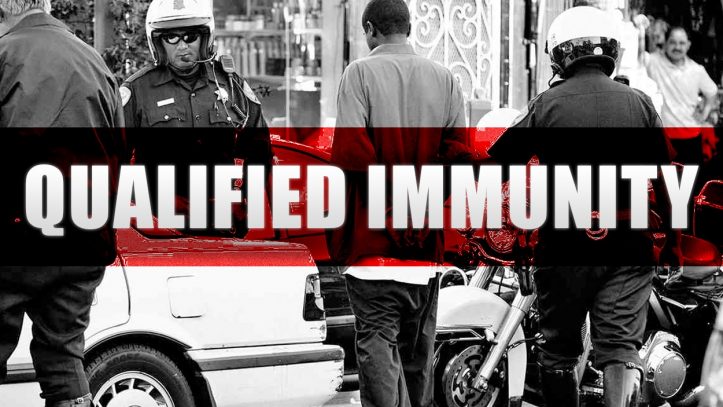In the United States, qualified immunity protects government officials doing discretionary acts from civil liability unless the plaintiff proves that the official actually violated “clearly established” constitutional or statutory rights of which an ordinary person would have understood.
The concept is not limited to officials working in the Federal government. Ordinary citizens are often targeted for lawsuits based on allegations of police brutality, medical malpractice, and discrimination.

The scope of qualified immunity has a lot to do with a history of abusive police practices. In the past two decades, thousands of lawsuits have been filed across the country on behalf of victims of police brutality, wrongful death, and other criminal justice abuses. Unfortunately, not all of these cases have been successful. In some instances, the victims have been allowed to file frivolous lawsuits against the police department or the individual police officer responsible for their injuries and deaths. While the Supreme Court has held that the people filing such lawsuits have a fundamental right to sue, lower courts are not always so generous to law enforcement officers. As a result, there is often a long and contentious battle before the courts to determine who may be ultimately responsible for a police brutality incident.
Because of this complication, qualified immunity theories have become increasingly important for the courts to decide. In many instances, lower courts are reluctant to apply the theory to particular cases, even when the victims are clearly innocent. Many lower courts have interpreted the phrase “clearly established law” to require courts to exclude cases involving police brutality or criminal acts by police officers. However, this principle has no basis in the United States Constitution or under any other constitutional law. This immunity protection applies to any victim of police brutality, not just those who have been shot dead by police.
The most common example of qualified immunity occurs in the area of police misconduct. Police officers are generally seen as innocent while engaging in certain actions, such as arresting somebody without probable cause, beating a suspect unconscious with excessive force, or using excessive force to make an arrest. Such actions may seem minor by modern standards, but they certainly do not rise to the level of constitutional violation that would justify a claim of qualified immunity. For instance, a person who is severely beaten while waiting in a bank should definitely retain legal counsel and pursue a case against the bank for allowing their guards to beat the person without impunity.
There are also other situations where qualified immunity may extend to a victim’s constitutional rights. For instance, a drug dealer arrested on suspicion of drug dealing could argue that he or she was acting in defense of his or her own life when they sold drugs. Although the suspect may never have intended to cause harm with the drugs, the arresting officers can still be sued for failing to prevent the harm if they did not use reasonable force against the suspect. A drug dealer can pursue a claim for injuries due to being arresting under the relevant circumstances, even though the defendant in this case ultimately caused the harm.
Sometimes, there is an exception to the qualified immunity principle. In order for a plaintiff to succeed in filing a lawsuit against a government official or actor who is accused of using excessive force in arresting someone, the plaintiff must show that they actually suffered injury from the police action. This requires a detailed analysis of the facts surrounding the arrest. Many courts have upheld the view that plaintiffs cannot successfully sue a public figure simply because they obtained money in exchange for acting in bad faith. Although the Fifth Amendment clearly protects against lawsuits for damages, the courts have been unwilling to apply that rule to cases involving excessive force.
There are two different answers to the question of what is qualified immunity. One answer is the traditional view held by the American court system that upholds the qualified immunity principle. The second is the more radical view advanced by the courts of the federal appeals court and many lower court judges throughout the country. Although the second argument has some merit, it is not as strong as the argument presented by the Supreme Court in landmark decisions such as Brown v. Texas, which held that police officers could not be sued for arresting someone without first knowing that the suspect had a constitutional right to the confrontation.
The most recent opinion to touch on the qualified immunity issue comes from the Eleventh Circuit of Appeals in a case called Morrison v. Wisconsin. In this case, the Eleventh Circuit found that a state statute making it illegal for any person to make any false statement in any examination relating to his or her fitness to obtain a license violated clearly established law. The court found that a state law requiring that an individual pass a test in order to get a license was an arbitrary, capricious, and unfair regulation. The Eleventh Circuit also held that the fact that the exam imposed a burdensome requirement on the applicant, and in addition, that the exam was designed to be confusing and therefore subject to penalties, meant that the statute was invalid. The court also found that the state failed to show that it would lose revenue if the law were adopted, pointing out that there was no guarantee that any individual would be able to pass the test.